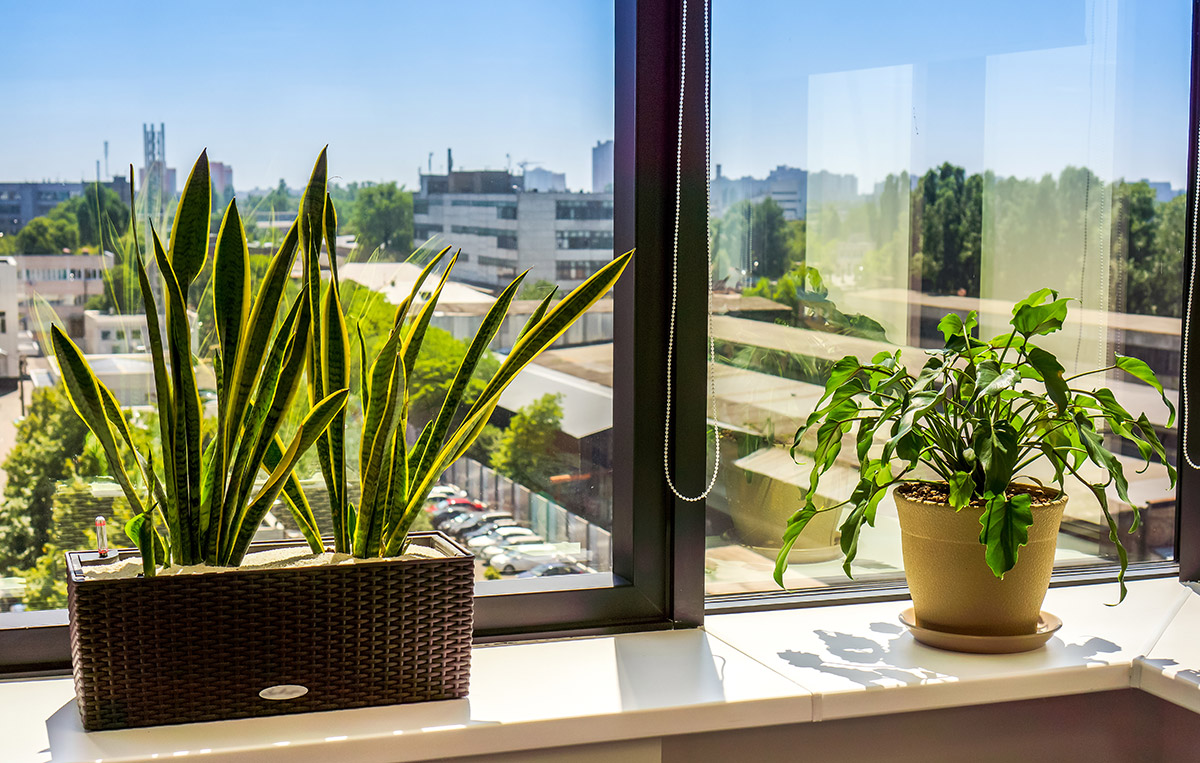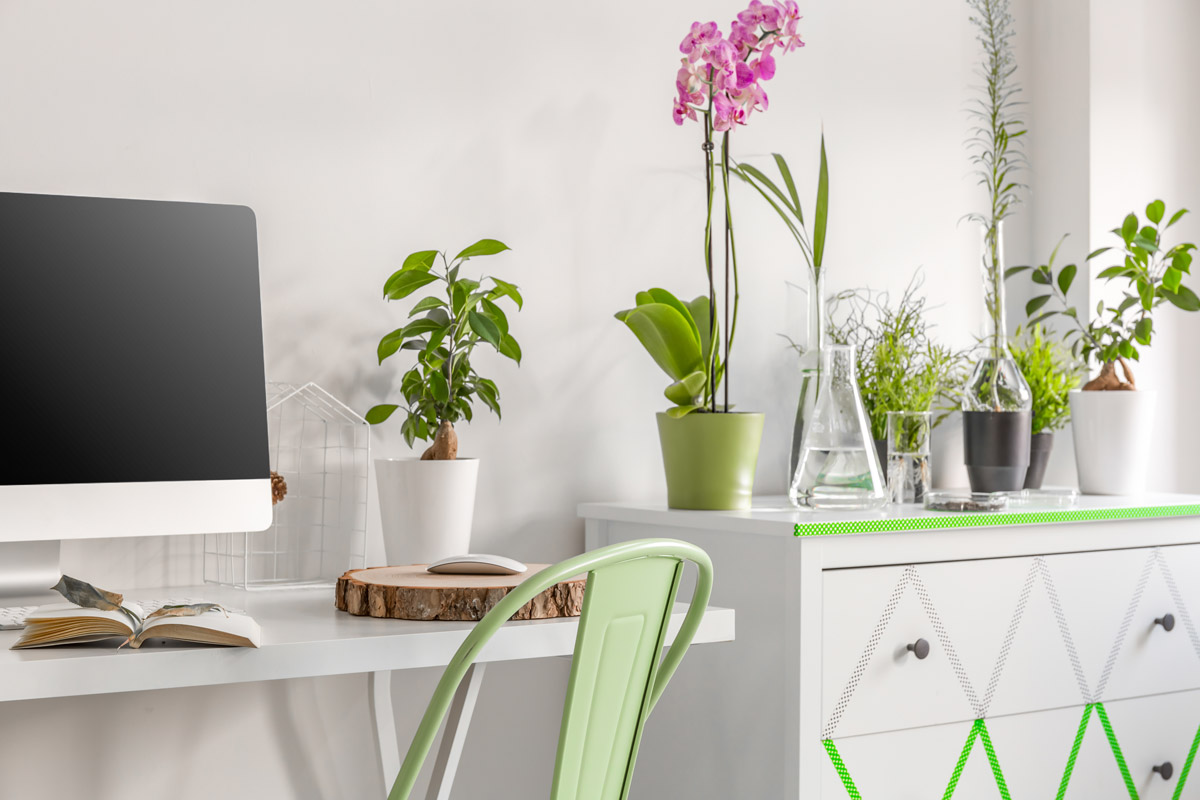You may not be aware that your office space could be damaging to your health. Studies have shown that indoor spaces can often contain volatile organic compounds (VOCs) such as acetone, benzene and formaldehyde. These types of compounds can be found in paint, furniture, printers, cleaning supplies and even dry cleaned clothes.
What are the risks?
The health effects caused by VOCs can vary depending on the compound in question, toxicity levels and length of exposure. Some examples of short-term exposure effects include eye and respiratory tract irritation, headaches and dizziness. Long-term exposure to VOCs can have severe effects including liver and kidney damage and even damage to the central nervous system and some forms of cancer.
In addition to VOCs, indoor work spaces also run the risk of a build-up of carbon dioxide. This can lead to that all too familiar ‘stuffy’ feeling which can cause lack of concentration and drowsiness and in turn, a decrease in production/efficiency.
What can you do?
One way to remove VOCs from indoor spaces is to implement an air filtration system but these can be costly to install and run. Luckily a much cheaper and greener solution is available in the way of common house plants. Using house plants to remove VOCs can prevent some of the harmful effects of dangerous compounds such as dizziness, allergies and asthma.

Researchers at the American Chemical Society have tested 5 different species of house plants for their effectiveness at removing VOCs from the atmosphere. The plants were exposed to 8 common VOCs for several hours in a sealed chamber. Results showed that all 5 plants were capable of absorbing acetone. The dracaena shrub absorbed an impressive 94 per cent of acetone from the air. The best performing plant overall was the bromeliad which was able to absorb 80 per cent of 6 out of the 8 VOCs tested. A study by UTS group also found that house plants, particularly palms, are effective at reducing carbon dioxide levels.
A healthier and happier workplace
Adding house plants to an office/business place to purify the air is a green solution to its core. Eliminating the need for expensive air filtration systems also translates to lower energy costs and usage. Psychologists from Exeter University have also found that employees can be 15 per cent more productive when house plants are introduced to a ‘lean’ office space so the benefits are plentiful.
For more information on the study by the American Chemical Society, see the video below.


